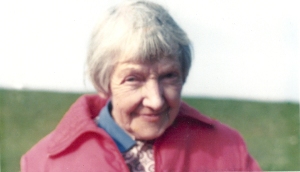POETRY FOR THE MERRY MONTH
Below are two versions of late fourteenth century verse, written by an anonymous English author, probably from North Staffordshire or Cheshire. It depicts the turning of the wheel of the year as it moves through spring into summer.
The first version is a mid-twentieth century translation by J.R.R. Tolkien. The second is the original. The poem is embedded in the text of Sir Gawain and the Green Knight, which arguably shows an immature warrior class (King Arthur’s knights) being taken down a peg by the primal forces of nature.
The extract here stands outside the main narrative, which occurs during the Christmas festivities of one year and the Hallowe’en to Christmas period of the next.
“But then the weather in the world makes war on the winter,
Cold creeps into the earth, clouds are uplifted,
Shining rain is shed in showers that all warm
Fall on the fair turf, flowers there open,
Of grounds and of groves green is the raiment,
Birds as busy a-building and gravely are singing
For sweetness of the soft summer that will soon be
On the way.
And blossoms burgeon and blow
In hedgerows bright and gay;
Then glorious musics go
Through the woods in proud array.
After the season of summer with its soft breezes,
When Zephyr goes sighing through seeds and herbs,
Right glad is the grass that grows in the open,
When the damp leaves
To greet a gay glance of the glistening sun”. (1)
“Bot thenne the weder of the worlde with winter hit threpes,
Colde clenges adoun, cloudes uplyften,
Shyre schedes the rayn in schowres ful warme,
Falles upon fayre flat, flowres there schewen.
Bothe groundes and the greves grene are her wedes,
Bryddes busken to bylde, and bremlych syngen
For solace of the softe somer that sues thereafter
Bi bonk;
And blossoumes bolne to blowe
Bi rawes rych and ronk,
Then notes noble innoghe
Are herde in wod so wlonk.
After, the sesoun of somer with the soft wyndes,
Quen Zeferus syfles himself on sedes and erbes;
Wela wynne is the wort that waxes theroute,
When the donkande dewed dropes of the leves,
To bide a blysful blusch of the bright sunne.”
(1) Sir Gawain and the Green Knight, Pearl and Sir Orfeo translated by J. R. R. Tolkien New York, NY: Ballantine Books, 1975
(2) C. Cawley (ed.) Pearl and Sir Gawain and the Green Knight London: Dent & New York: Dutton: Everyman’s Library, 1962

 Clare Cameron (1896 – 1983) was an English poet and mystic, whose life spanned much of the twentieth century. In 1930 her Green Fields of England, centred on footpath travels in the English countryside, was compared to the work of Richard Jefferies and Edward Thomas in the previous generation. At this period, she was involved with the Hermetic Order of the Golden Dawn. For two years the noted occultist Israel Regardie worked for her husband Thomas Burke and wrote the first of his books on the Kabbalah at their home. Later, Clare became associated with the London Buddhist Society under the leadership of Christmas Humphries and formed a friendship with the young Alan Watts, who she succeeded as editor of the journal Buddhism in England (later The Middle Way) when he left for the U.S. in 1938. Gradually Clare moved in a more Christian direction, and for over 20 years she edited The Science of Thought Review, based on the ideas of the mystical teacher Henry Hamblin.
Clare Cameron (1896 – 1983) was an English poet and mystic, whose life spanned much of the twentieth century. In 1930 her Green Fields of England, centred on footpath travels in the English countryside, was compared to the work of Richard Jefferies and Edward Thomas in the previous generation. At this period, she was involved with the Hermetic Order of the Golden Dawn. For two years the noted occultist Israel Regardie worked for her husband Thomas Burke and wrote the first of his books on the Kabbalah at their home. Later, Clare became associated with the London Buddhist Society under the leadership of Christmas Humphries and formed a friendship with the young Alan Watts, who she succeeded as editor of the journal Buddhism in England (later The Middle Way) when he left for the U.S. in 1938. Gradually Clare moved in a more Christian direction, and for over 20 years she edited The Science of Thought Review, based on the ideas of the mystical teacher Henry Hamblin. Throughout all these changes Clare drew on her experience of nature as sacred within a spirituality that emphasized the sanctity of existence and the silent background of being. Politically she championed women’s empowerment, non-violence in both aims and methods, the view that interdependence applies to countries as well as people, and the growing attention to environmental causes. She also supported the early development of interfaith dialogue.
Throughout all these changes Clare drew on her experience of nature as sacred within a spirituality that emphasized the sanctity of existence and the silent background of being. Politically she championed women’s empowerment, non-violence in both aims and methods, the view that interdependence applies to countries as well as people, and the growing attention to environmental causes. She also supported the early development of interfaith dialogue.